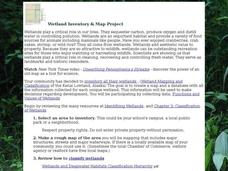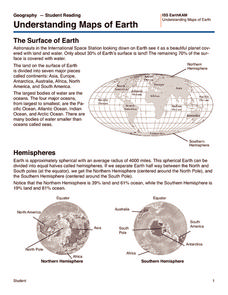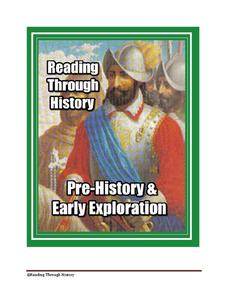Baylor College
Tools of Magnification
Life science learners need to be able to use a microscope. With this comprehensive resource, they first experience how lenses and magnification work, and then get familiar with using a compound microscope. Tremendous background...
Curated OER
Wetland Inventory and Map Project
In this wetlands inventory and map project worksheet, students do research on the wetlands and complete a map project about it. Students follow 6 sets of directions with Internet links.
University of Georgia
Heating and Cooling of Land Forms
Compare heating and cooling rates of different land forms. A lab activity has groups collect data on the rate of heating and cooling of soil, grass, saltwater, fresh water, and sand. An analysis of the rates shows how the different land...
Institute for Geophysics
Understanding Maps of Earth
Here is your go-to student resource on primary geography concepts, including facts about the surface of the earth and its hemispheres, latitude and longitude, globes, types of maps, and identifying continents and oceans.
University of Georgia
The Power of Peanuts
Measure the amount of energy in a peanut by igniting a chemical reaction. Classes use a laboratory setup to burn a peanut and measure the amount of heat it releases through a temperature analysis. They calculate the number of Joules of...
Reading Through History
Early History and Exploration Unit
We all know about Christopher Columbus, but who else explored the Americas, and specifically, the future United States of America? Learners find out these answers and more in a resource that includes four different reading sections,...





